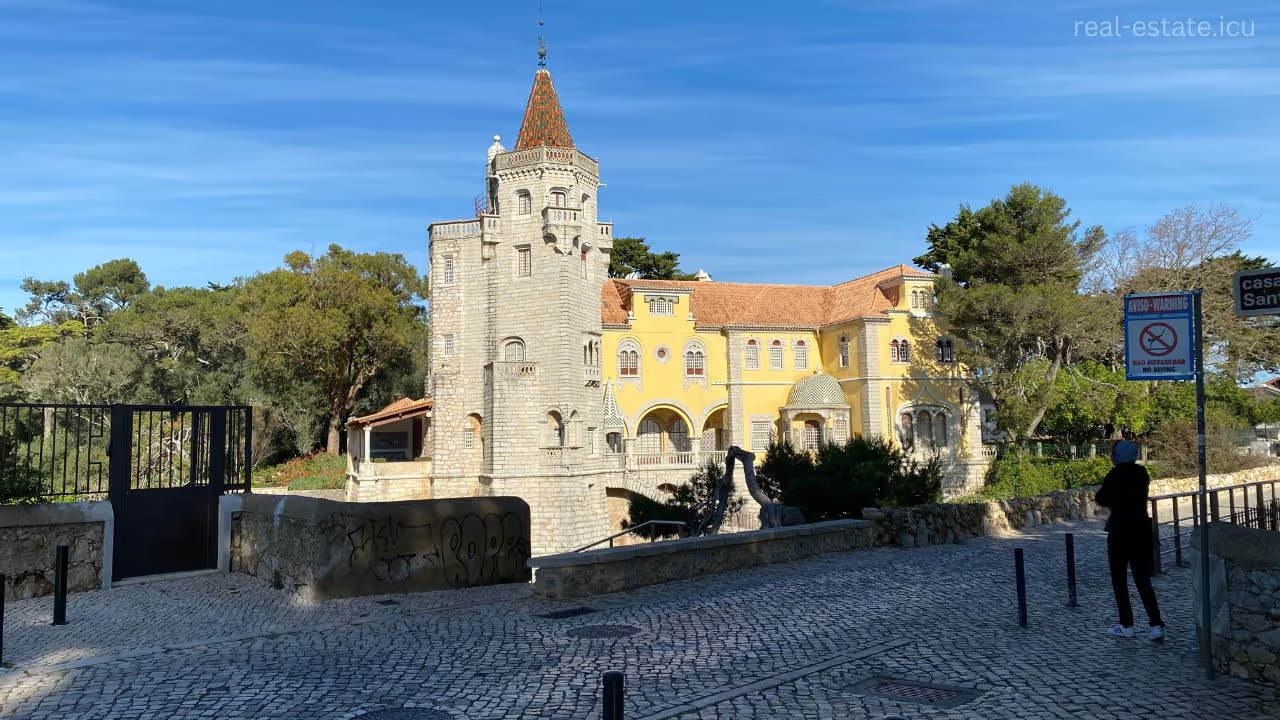Documents and Taxation for Buying Property in Cascais

Buying property in Cascais as a foreigner often seems straightforward, but the paperwork and tax side can catch you off guard. This article breaks down key documents, acquisition taxes, ongoing fiscal obligations, rental income considerations, and working with professionals—each section roughly 300–500 words with varied sentence lengths, slight colloquial slips, internal links, outbound citations, lists, tables, images, and FAQs at the end.
1. Essential Documents for Property Purchase
When you decide to buy in Cascais, gathering the right documents early smooths the path. Some requirements are universal in Portugal; others have local nuances.
Portuguese Tax Number (NIF)
Every buyer—resident or non-resident—needs a Número de Identificação Fiscal (NIF). You can get it at a Finanças office in Portugal or via a fiscal representative if you’re remote. The NIF is mandatory for opening a Portuguese bank account, signing contracts, paying taxes, and registering utilities. Without it, you hit a wall.
Identification
- Individuals: Valid passport or EU national ID. Ensure your passport expiry date covers the transaction period.
- Companies: If purchasing via a corporate entity, present business registration documents, company statutes, and ID of legal representative(s). Non-EU companies often need fiscal representation and Portuguese address proof.
Portuguese Bank Account
A local account is needed for:
- Paying acquisition taxes (IMT, stamp duty).
- Transferring deposit and final amounts.
- Receiving rental income if you let the property. Some banks may ask for proof of address, NIF, and a minimal deposit. Opening can be in person or via video identification in some cases.
Promissory Contract (CPCV)
Known as Contrato de Promessa de Compra e Venda, this preliminary agreement binds buyer and seller under set conditions:
- Price and payment terms: deposit (usually 10–30%).
- Completion date: timeframe for final deed.
- Conditions precedent: financing approval, inspection outcomes.
- Penalties: what happens if either side defaults. Your lawyer reviews and negotiates clauses. A slip: sometimes buyers think “I’ll sign quick and sort details later,” but it’s best to clarify everything upfront.
Final Deed (Escritura Pública de Compra e Venda)
Signed before a Notário (notary). Required documents at deed:
- IDs and NIFs of buyer and seller.
- Proof of IMT and stamp duty payment.
- Promissory contract (CPCV).
- Bank statements showing deposit availability. After signing, the notary forwards deed to Conservatória do Registo Predial for registration in your name. You get the matricula (property registration).
Additional Documents
- Energy Performance Certificate (Certificado Energético): mandatory before marketing and sale.
- Land Registry Certificate (Certidão Permanente): confirms no liens, mortgages, or encumbrances.
- Planning and Licensing: if property is in heritage zones (e.g., parts of Cascais Central), check Câmara Municipal approvals.
- Power of Attorney (Procuração): useful if you can’t attend in person; ensure POA is legalized/apostilled and translated if needed.
- Pre-approval Letter: from Portuguese bank if financing, to include financing condition in CPCV.
- Fiscal Representation: non-EU buyers often need a Portuguese fiscal representative for tax filings (IMI, rental income).
Internal: for detailed process, see Manage Purchase and Buying in Cascais guide. For NIF assistance, our Buy to Relocate services can help.
Outbound: general property document guide ; Portugal legal matters overview .
2. Acquisition Taxes and Fees
Beyond the purchase price, several taxes and fees apply. Budgeting accurately avoids surprises.
IMT – Property Transfer Tax
Imposto Municipal sobre a Transmissão Onerosa de Imóveis is payable before signing the final deed. Rates in 2025 (mainland Portugal) are progressive based on property value and type. Roughly:
- Up to €97,064: 0%
- €97,064–€132,774: 2%
- €132,774–€181,034: 5%
- €181,034–€301,688: 7%
- €301,688–€578,598: 8%
- €578,598–€1,050,400: 6%
- Over €1,050,400: 7.5% Mixed rural-urban parcels calculate separately (e.g., urban part vs rustic land) ([imin-portugal.com][1]). First-time buyers under 35 may benefit from exemptions or reduced rates for primary residence up to certain value thresholds ([tagusproperty.com][2]).
Use Portaldas Finanças IMT simulator to estimate. Note: advertised prices may or may not include IMT—clarify with seller/agent.
Stamp Duty (Imposto do Selo)
Flat rate 0.8% of purchase price. Paid alongside IMT or at deed signing. Covers stamping of deeds, contracts, and mortgage documents.
Notary & Registration Fees
Notary fees vary by complexity but often €1,000–€2,500 total. Registration at Conservatória do Registo Predial adds fees. Lawyer fees for contract review and due diligence range €1,500–€4,000 depending on scope.
VAT (IVA)
Applies mainly to new developments sold by developers. Standard rate 23% typically included in list price but confirm whether price is net of VAT. For resale of older properties, VAT usually not applicable.
Mortgage-Related Fees
- Mortgage Stamp Duty: around 0.6% of loan amount.
- Bank fees: arrangement fees vary by bank.
- Valuation fee: bank may require property valuation (~€300–€500).
Survey and Inspection Costs
Though optional, structural inspections (~€300–€1,000) can reveal issues (damp, wiring, roof) before committing. Architectural consultations if planning renovations.
Table: Acquisition Cost Summary
| Item | Rate/Amount |
|---|---|
| IMT | 0–8% (progressive) |
| Stamp Duty | 0.8% |
| Notary & Registration | €1,000–€2,500+ |
| Lawyer/Tax Advisor | €1,500–€4,000 |
| VAT (new builds) | 23% |
| Mortgage Stamp Duty | 0.6% of loan |
| Valuation | €300–€500 |
| Survey/Inspection | €300–€1,000 |
Budget: typically add ~5–7% on top of purchase price for all acquisition costs, but can vary based on property type, financing, and complexity.
Internal: for financing and tax planning see Buy to Invest and Documents & Taxation. Early mortgage pre-approval helps include financing condition in CPCV.
Outbound: IMT details ([portugalbuyersagent.com][3]); stamp duty overview ([globalcitizensolutions.com][4]).
3. Annual & Ongoing Fiscal Obligations
Owning property triggers yearly taxes and occasional filings.
IMI – Municipal Property Tax
Imposto Municipal sobre Imóveis is charged annually based on the property’s tax value (VPT). Rates vary by municipality; in Cascais ~0.3%–0.45% for urban properties in 2025 ([imin-portugal.com][1]). Payment due typically in April; amounts above thresholds can be split into installments. Exemptions for new builds or energy-efficient homes may apply—check Câmara announcements.
AIMI – Additional IMI
Adicional ao IMI applies to high-value portfolios. If total taxable property value exceeds thresholds (e.g., above €600,000), additional rates apply: 0.7% for portion €600k–€1M, 1% for €1M–€2M, 1.5% above €2M total assets ([imin-portugal.com][1]). Relevant for investors or owners of luxury estates.
Income Tax on Rental Income
- Non-residents: flat 28% on net rental income; allowable deductions include maintenance, property manager fees, insurance, IMI ([imin-portugal.com][1]).
- Residents: rental profits taxed at progressive IRS rates; furnished long-term rentals have 50% of gross rent added to taxable base. Annual filing via Modelo 3. Register rental contract with Finanças. For short-term lets (Alojamento Local), additional VAT considerations may arise if services provided.
Capital Gains Tax
When selling, capital gain taxed:
- Residents: 50% of gain added to taxable income.
- Non-residents: flat 28% on full gain. Primary residence sale may be exempt if reinvested into another primary home in Portugal within specified timeframe.
Wealth & Other Considerations
Portugal doesn’t levy inheritance or gift tax between close relatives, but stamp duty 0.8% applies to property transfers ([imin-portugal.com][1]). Keep records of deeds, tax receipts, rental contracts. Utilities, condominium fees, insurance, and maintenance costs should be budgeted. Use reminders or accountant to avoid late penalties.
Internal: see Landlord guide for rental tax details; Documents & Taxation for deeper info. Consult a tax advisor for personalized guidance.
Outbound: IMI & AIMI overview ([imin-portugal.com][1]).
4. Rental Income & Tax Optimization
If you plan to rent your Cascais property, understanding licensing, taxation, and management is key.
Alojamento Local (AL) Licensing
Short-term rentals need AL license from Câmara Municipal. Steps:
- Verify condominium rules—some buildings restrict short lets.
- Ensure property meets safety standards (fire alarms, signage).
- Register on Finanças portal for AL; obtain registration number.
- Charge IVA (VAT) on additional services (e.g., breakfast) if applicable. Non-compliance can incur fines, so check early.
Internal: detailed steps in Landlord guide.
Tax on Rental Income
- Short-Term: Treated as business income; VAT may apply on certain services. Net profits taxed at 28% (non-resident) or progressive rates for residents.
- Long-Term: Simpler tax regime; net income taxed at 28% flat for non-residents, residents include in IRS.
Deductible expenses: property management fees, utilities (if owner-paid), insurance, IMI, maintenance, depreciation (in some cases). Keep invoices. Good record-keeping reduces taxable base.
NHR Regime
Non-Habitual Resident status may benefit those relocating. Foreign-sourced income may be taxed favorably or exempt; rental income from Portuguese property under NHR taxed at flat rates? Consult tax advisor early; apply within deadline after residency registration.
Yield Expectations
- Short-Term: High gross yields but variable seasonally. Prime areas (Cascais Central, Guia) see ~70–80% occupancy; nightly rates vary by season. Management costs (15–25%) reduce net.
- Long-Term: Lower yields (~3–5% gross) but stable occupancy. Suitable near schools, transport, or for professionals.
Management Considerations
- Engage local property manager for guest communication, cleaning, maintenance.
- Dynamic pricing tools (AirDNA) help set rates.
- Quality staging and photography increase bookings.
Table: Rental Comparison
| Aspect | Short-Term (AL) | Long-Term |
|---|---|---|
| Yield (gross) | ~6–8% | ~3–5% |
| Management Effort | High | Low–Medium |
| Seasonality Risk | High | Low |
| Tax Complexity | Higher (VAT, AL rules) | Simpler |
Internal: explore Vacation Rental Services for support. Outbound: Airbnb occupancy trends ([imin-portugal.com][1]).
5. Working with Professionals & Practical Tips
Navigating documents and taxation is smoother with qualified experts and good practices.
Hiring a Lawyer (Advogado)
Choose a lawyer fluent in your language if needed, experienced in Portuguese real estate. They:
- Perform due diligence: check title, liens at Conservatória do Registo Predial.
- Review CPCV and deed clauses.
- Liaise with notary for Escritura Pública.
- Advise on heritage or zoning restrictions in Cascais Central or Estoril.
Check reputation via team profiles or referrals.
Engaging a Tax Advisor / Accountant
They handle:
- IMT, IMI filings.
- Rental income declarations.
- NHR registration and compliance.
- Capital gains planning.
- VAT issues for AL. Early engagement ensures deadlines met and opportunities seized (e.g., first-time buyer exemptions, NHR regime).
Notary (Notário)
Final deed signing occurs here. Notary verifies IDs, documents, and ensures IMT payment proof. Choose a notary near property location for convenience.
Fiscal Representation
Non-EU buyers may need a fiscal representative for tax filings. Accountant or law firm often provides this service, ensuring official communications handled properly.
Process Flow & Checklists
- Preparation: Gather NIF, bank account, pre-approval, POA if remote.
- Search & Offer: Use buyer’s agent to shortlist and negotiate.
- CPCV: Lawyer drafts contract with financing and inspection clauses.
- Tax Calculations: Tax advisor computes IMT/Stamp Duty; arrange payments.
- Inspections: Structural surveys before final commitment.
- Deed Signing: Notary appointment; transfer funds; register property.
- Post-Purchase: IMI registration, utilities setup, AL license if renting.
- Ongoing: Annual IMI, rental declarations, monitor regulatory changes.
Small slip: keep a folder (digital and physical) of all documents and receipts. Use calendar reminders for IMI and IRS deadlines. Portuguese banking apps help manage payments.
Practical Tips
- Energy Certificate: Obtain early; affects marketing and may reveal upgrade needs.
- Permit Checks: For renovations, confirm Câmara Municipal requirements, especially in heritage zones.
- Condominium Rules: If renting short-term, verify building bylaws.
- Budget Buffer: For unexpected costs (permit delays, extra taxes).
- Language: Learn basic Portuguese terms for contracts; translators help but some nuances matter.
- Local Network: Connect with expat forums or homeowner groups for recommendations (e.g., accountants, inspectors).
- Use Internal Resources: Manage Purchase, Buy to Relocate, Documents & Taxation.
Outbound: general Portugal tax overview ([imin-portugal.com][1]).
Frequently Asked Questions
-
What documents do I need before making an offer? You need your NIF, passport, proof of funds or bank pre-approval, and ideally a Portuguese bank account. A POA helps if you can’t attend in person. Lawyer reviews title documents early.
-
How is IMT calculated? IMT is progressive from 0% up to ~8% based on property price brackets. Use the Finanças IMT simulator or consult tax advisor for exact amount ([portugalbuyersagent.com][3]).
-
What annual taxes apply? IMI (~0.3–0.45% of VPT), possible AIMI for high-value portfolios, plus tax on rental income if letting. Budget utilities and maintenance separately.
-
Can non-EU buyers handle paperwork remotely? Yes: obtain NIF via fiscal representative, use POA for signing deeds, open bank account via video or representative. Engaging local professionals is key.
-
What if I rent short-term? Obtain Alojamento Local license, check condominium bylaws, register with Finanças, manage VAT on services. Use property manager to handle bookings and compliance.
-
Are there tax exemptions? First-time buyers under 35 may get IMT/stamp duty exemptions for primary residence up to set value. NHR regime offers benefits for relocators. Consult tax advisor.
-
Do I need an energy certificate? Yes. Mandatory before marketing and sale. It shows property efficiency and may identify upgrade needs.
-
How long does registration take after deed? Notary submits deed for registration; typically a few weeks to appear in Land Registry. Meanwhile, IMI billing updates for new owner.
-
What fees to budget for document services? Lawyer fees ~€1,500–€4,000; notary/registration ~€1,000–€2,500; tax advisor similar; survey ~€300–€1,000; translation or POA legalization extra.
-
Where can I get help? Use our Cascais team via Contact us. Explore Manage Purchase services for end-to-end support.
 Insights
Insights  Insights
Insights